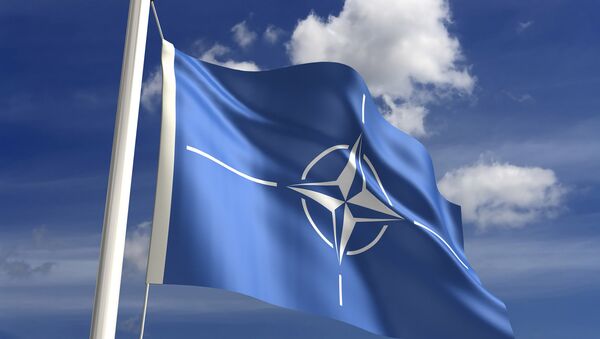MOSCOW, April 30 (RIA Novosti), Daria Chernyshova – NATO is trying to solve its own problems using the situation in Ukraine and playing up the "Russian threat," Vice President of the Russian Center for Policy Studies Dmitry Polikanov told RIA Novosti.
“NATO attempts to use the situation in Ukraine to resolve the old problems of the alliance,” Polikanov said.
“By referring to the Russian threat and the need to ensure collective defense, NATO tries to consolidate the trans-Atlantic link and to convince the European members to spend more on common security,” he added.
US Secretary of State John Kerry called on NATO members to increase their defense spending following the events unfolding in Ukraine, which he deemed “a wake-up call.”
“We cannot continue to allow allied defense budgets to shrink,” Kerry said Tuesday at the Atlantic Council's Conference “Toward a Europe Whole and Free.”
“Clearly, not all allies are going to meet the NATO benchmark of 2 percent of GDP overnight or even next year. But it’s time for allies who are below that level to make credible commitments to increase their spending on defense over the next five years,” he said.
“This is a decade-long song related to the desire of Washington to have more adequate burden-sharing and reduce the costs of the NATO ‘security umbrella’ in the situation of tough budgetary expenditure in the United States,” Polikanov told RIA Novosti.
“While previous attempts, such as the ‘smart defense initiative’ did not prove very persuasive for Europe, the crisis in Ukraine in the immediate vicinity of the EU nations may be a much stronger argument, especially when based on Cold War stereotypes of an aggressive Russia,” he added.
At the same time Richard Weitz, Director of the Center for Political-Military Analysis at the Hudson Institute, said Kerry was justified in calling for more NATO defense spending. “Boosting this is important for non-Russian reasons, especially to enhance cyber security and missile defense,” Weitz told RIA Novosti.
He also said that in 2010 the alliance adopted a new strategic concept aimed at revitalizing the alliance and to manage new challenges. The concept intends for NATO to be “effective in a changing world, against new threats, with new capabilities and new partners” by including non-member countries and other multinational institutions, which in turn means NATO needs to address several issues related to its defense spending and capabilities
“As noted in the January 2014 NATO Defense Ministerial and the February 2014 Munich Security Conference, NATO members have only made partial progress toward realizing these ends,” Weitz said. “In particular, the ongoing defense budget cuts adopted by many members, which follow years of underfunding the military, call into question whether the Alliance can develop and sustain the capabilities needed to meet these requirements.”
According to the Stockholm International Peace Research Institute (SIPRI), the US accounts for over 70 percent of the total defense expenditures of NATO’s 28 member countries.


